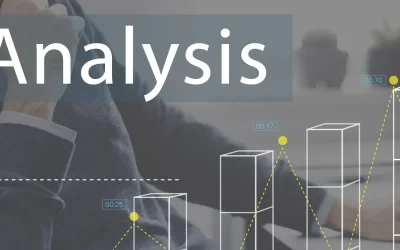While there are many benefits to renting in retirement, there are also many motives for homeownership. The latter could be cost-effective if it eliminates the need for upkeep and repairs. Nonetheless, homeownership can be less stressful if you don’t have to stress about a renter increasing your rent.
Regardless of the path you choose, one of your biggest monthly expenses in retirement will be housing prices. Here are some things to think about while choosing between renting and homeownership.
Renting vs. Homeownership: A Comparison from the retirement perspective
Taxation is real even after retirement
Retired people opting for becoming homeowners can be eligible for some tax breaks. The house loan interest deduction reduces any out-of-pocket expenses made in the initial years of the loan as long as deductions remain categorized.
If you rent a real estate home, you cannot deduct your loan interest from your taxes. Remember that the standard deduction, available to all taxpayers, is claimable. The same is valid for homeowners who don’t have enough deductions to properly itemize.
In Homeownership, you are responsible for the maintenance and regular upkeep, as was previously stated. This could cost a lot of money. A value increase that exceeds the project cost is also uncommon with home renovation projects.
Concerning Risks: Homeownership Vs Renting
Theoretically, renting is less expensive in retirement than buying a home. But Homeownership also carries significant financial concerns. Costs may rise above those of renting due to factors like changes in market value, unanticipated maintenance costs, and insurance deductibles. Whatever choice you make, remember to account for inflation since the cost of insurance, taxes, and rent all rise over time.
The risk of homeownership-related upkeep is a significant additional problem. Renters are not responsible for routine maintenance costs, equipment breakdowns, or natural disasters like storms or floods. Renting is akin to purchasing an insurance policy against maintenance. Both the tenant and the landlord must worry about these unforeseen expenses.
An opportunity for investment?
Even though real estate might present lucrative investment prospects, a home shouldn’t be bought just for that purpose. Finding another place to live should not be necessary when selling an investment item because housing is an inherent cost of life. When budgeting for housing costs, retirees shouldn’t consider the investment potential of ownership.
Owning a place to call home is a cost, not an investment. A cash flow-producing investment is one that is made. Although owning a home has some advantages, it is a considerably less appealing “investment” when you take into account the costs, the capital commitment, the illiquidity of the asset, and the reality that house values don’t always increase.
A homeowner would need to buy low and sell high or buy and sell properties opportunistically in order to genuinely employ a home as an investment in homeownership. But if one sells a house for a profit at a high price, they run the risk of being priced out of the market if values rise further. Many retirees are on fixed incomes, which may prevent them from buying another home or apartment. In this case, they will have to deal with a landlord.
Capitalizing and liquidity
Being a tenant also offers flexibility from worrying about the housing market’s state and liquidity. The time it takes to sell a home, the amount of paperwork involved, and the commission most real estate agents charge all affect the return on investment. When it’s time to move, avoiding these snares can undoubtedly be worthwhile.
Some retirees only get pension payments, such as Social Security benefits, annuity payments, or benefits from a union or government plan. They don’t always have a lot of readily available money. The routine costs of home ownership could be catastrophic if there aren’t enough assets set aside for unforeseen costs.
Benefits of Homeownership
The decision between renting and buying may initially appear to be simpler if you are one of the 44% of homeowners who do not have any debt upon retiring. Even yet, the absence of a mortgage payment does not make this a no-brainer. Property taxes and maintenance expenditures must be taken into account; the older your home, the greater those charges may be.
Even so, it’s simple to come up with reasons to stay, particularly if you already own your home. Here are a few more supporting claims.
Stability
You’ll probably experience more stability and control if you own your home. You won’t need to be concerned about your landlord raising the rent. In a similar vein, a landlord cannot sell the property from under your feet. You can still leave, but it will be your choice and not the landlord. You cannot modify a rental, at least not without the owner’s consent.
Build Equity
It’s vital to leave an inheritance for certain retirees. Others wish to obtain a loan, line of credit or reverse mortgage using the accumulated home equity. The cases when homeownership makes the most sense are those. Homeownership gives you the chance to hold an asset that increases in value in locations where property values are rising quickly.
Naturally, it also means you won’t have to worry about rent increases, which are so typical in brisk real estate markets.
Emotions
An essential, non-financial factor to take into account is how emotionally invested you are in the prospect of owning or the particular home in which you now reside.
Benefits: Tax deductions, stability, and equity.
Cons: Time and maintenance expenditures; lack of liquidity; property taxes
The Bottom Line: What’s best? Homeownership or Renting?
The choice of whether to downsize to a smaller home or keep the family home. Can be challenging for many people who are close to retiring. The stress and costs associated with owning come into play if you do decide to move. There are a number of factors to take into account when deciding whether to buy or rent a property in retirement, including:
- Is the house an opportunity for a potential investment or just another expense?
- What financial risks can you face in homeownership in the form of unforeseen expenses, and can your budget withstand them?
Contact Details
- UAN +92 311 1154154
- +92 34 566 778 85
- info@tajresidencia.com
- Adjacent to CDA Sector I-14 &, I-15, Rawalpindi, Punjab



